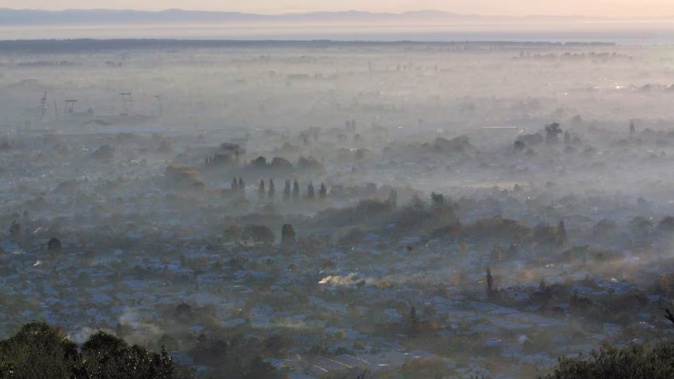
Children born in our most deprived neighbourhoods have been growing up in much dirtier air than their better-off counterparts - with potentially life-long consequences.
In the first study of its kind, researchers tapped into a decade of data to explore how air pollution can be better or worse depending on where we live, despite monitoring showing nationwide air quality levels are generally good for most of the year.
In recent years, scientists have revealed some pollutants stemming from car exhausts and chimneys have been quietly contributing to thousands of premature deaths each year - while global studies have drawn links to risks of brain abnormalities, affective disorders and youth suicide.
Yet we’ve still been missing much of the picture: especially when it comes to how the polluted air we’re exposed to as children can cause health problems in later life.
Now, a team of researchers led by the University of Canterbury’s Dr Matt Hobbs trawled through 10 years of data from 1265 people tracked by the longitudinal Christchurch Health and Development Study.
Using new geospatial techniques and council records from 30 monitoring stations in Christchurch, they were able to map levels of black smoke that each of those people were exposed to over the decade from their birth in mid-1977.
Their analysis turned up some worrying results: those raised in the most deprived areas experienced significantly higher pollution than those in wealthier neighbourhoods.
Similar disparities were observed among children born to younger mothers and those from less educated families, as well as Māori and Pacific children.
Hobbs said he was surprised at the extent of the differences, even as air quality across Christchurch generally improved over the 10-year period.
“Even as overall pollution levels decreased over time for everyone, certain disadvantaged groups continued to experience higher exposures,” Hobbs said.
“This finding challenges the assumption that improvements in environmental quality benefit all segments of the population equally.”
The results also raised the question of whether those worse-off children had grown up with any associated long-term physical and mental health problems, which Hobbs’ team was now keen to investigate.
Ultimately, he said the findings showed why it was crucial to take a “whole-of-life” look at environmental health risks – especially for our most vulnerable.
“Addressing these disparities requires targeted policies and interventions that prioritise vulnerable and disadvantaged groups.”
The study comes after researchers last year reported how 94% of Pacific people were living in areas with higher levels of two pollutants linked to traffic.
It prompted a call from one air quality scientist for New Zealand to set a national standard for levels of key pollutant PM2.5 – something China has had in place since 2013.
Take your Radio, Podcasts and Music with you









